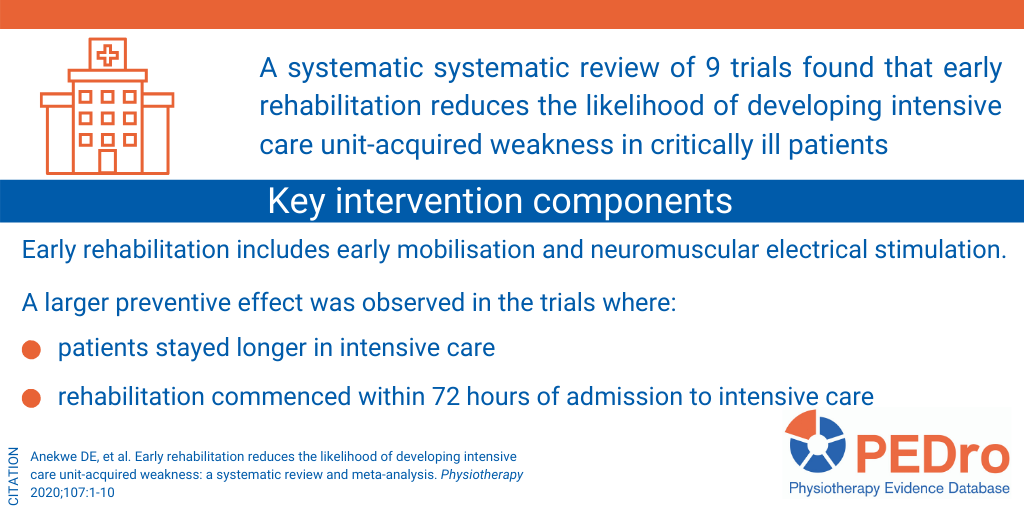Last month we summarised the Anekwe et al. The review concluded that early rehabilitation interventions (early mobilisation and/or neuromuscular electrical stimulation) reduce the likelihood of developing intensive care unit-acquired weakness in critically ill patients.
Some suggestions for providing early mobilisation and/or neuromuscular electrical stimulation are in this infographic.

Anekwe DE, et al. Early rehabilitation reduces the likelihood of developing intensive care unit-acquired weakness: a systematic review and meta-analysis. Physiotherapy 2020;107:1-10



